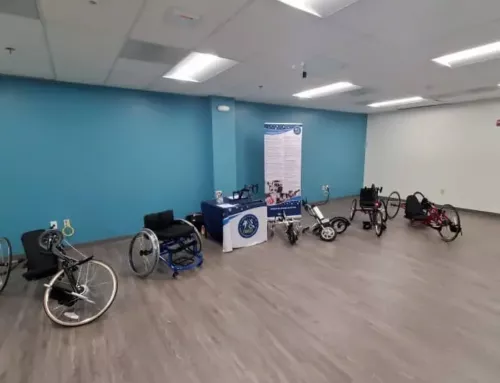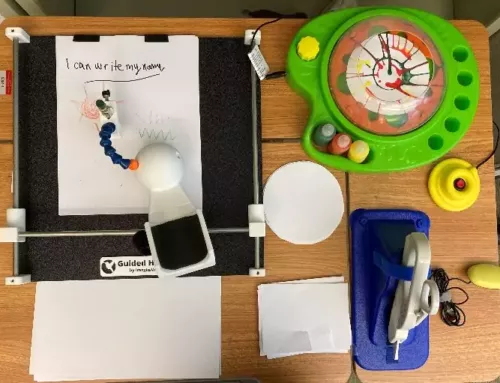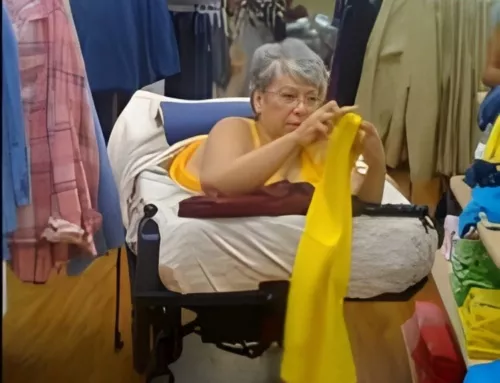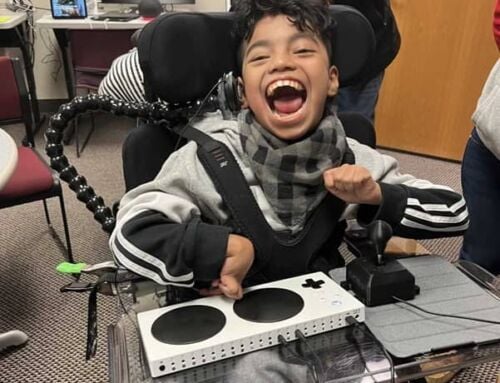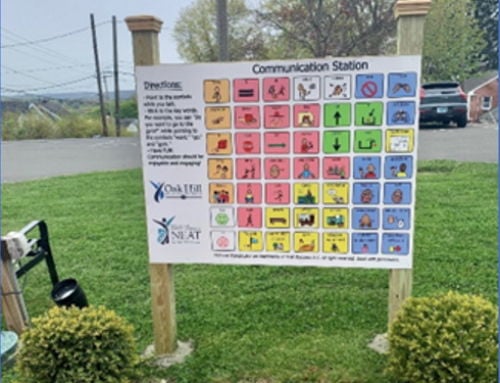A.T. Programs Address Social Isolation
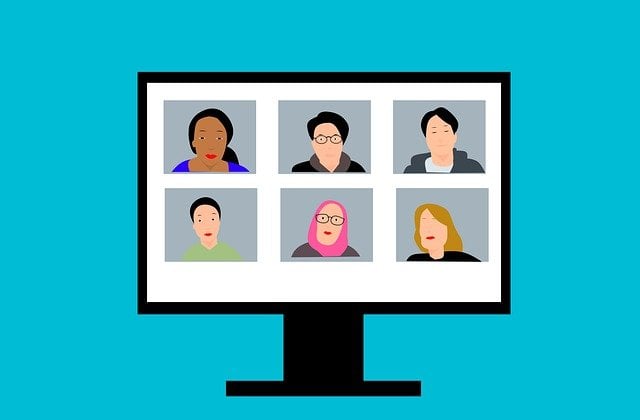
AT3 Center’s latest COVID-19 Issue Brief highlights the work of four A.T. Programs to end social isolation among seniors and persons with disabilities.
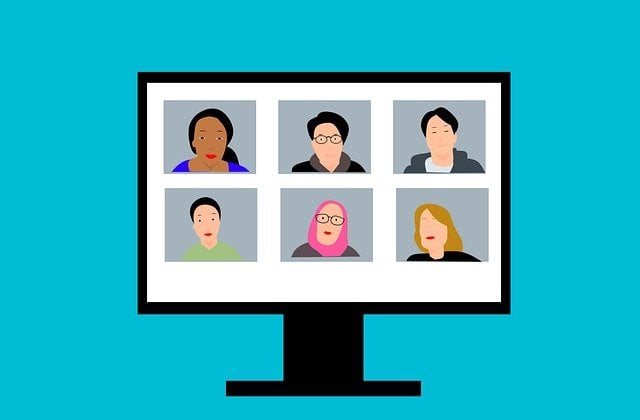
As older adults and individuals with disabilities comply with stay-at-home orders and COVID-19 safety recommendations, State and Territory A.T. Programs are providing expertise to help those experiencing social isolation stay in touch with their communities and support their mental health through accessible, connected technologies and other A.T. for anxiety and companionship.
Spotlights On Programs Addressing Social Isolation:
Idaho
Idaho A.T. Project’s response began last spring when they compiled a Family Communication During COVID-19 Isolation guide and an Emergency Communication Plan for Seniors and People with Disabilities. As the federal COVID-19 CARES Act funds became available, the program joined various collaborative task forces to prevent duplication of efforts and help identify gaps among public and private entities. “What emerged was the need for overall communication supports in long-term care facilities as well as a gap in technology expertise,” reports Program Director Janice Carson. “Many agencies were providing iPads and robotic pets, but no one considered things like wireless intercoms for window visits, personal amplifiers and pocket talkers for distanced conversations, or mounts and cases for iPads to prevent them from being dropped and broken.”
To help, Idaho A.T. Project launched a Communication Access Program. They partnered with the Area Agencies on Aging to survey facilities to determine the scope of the needs and the Dept. of Health and Welfare to provide technology training for all 461 facilities in the state. Next, they created communication kits for facilities made up of essential devices and guides. “The work keeps expanding,” says Carson. “We have a contract with the largest area agency on aging in the state. We are providing communication assistance on the facility level and the resident level. Most recently, we have begun studying how to also provide unique supports for individuals on ventilators.”
North Dakota:
In April of 2020, ND Assistive partnered with the ND Dept. of Human Services, Aging Services Division, to create the COVID-19 Equipment Distribution Program. The new initiative launched with Critical Relief Funds (and additional sources) and began by surveying rural nursing facilities to determine the needs of ND’s most isolated communities. Those needs informed the purchase of devices, including tablets and stands, personal listening systems, voice amplifiers, Bluetooth headsets, webcams, and smart speakers, all of which have become a part of the ND Assistive device loan inventory. To date, over 1,250 devices are on long-term loan to over 110 nursing homes, now in both rural and metro areas.
In addition, ND Assistive has been providing remote trainings and device demonstrations to facilities statewide. “It’s been a valuable and unique opportunity to connect with so many nursing homes at one time,” emphasizes ND Assistive Program Director Jeannie Krull. “We’ve connected with many facilities via Zoom and introduced them to all of our A.T. programs. We are building relationships to extend beyond the COVID-19 era.”
Virginia:
In 2020, Virginia’s A.T. Act program (VATS) built on their relationship with the state’s network of Area Agencies on Aging and No Wrong Door Virginia (which streamlines access to services across agencies) to address the social isolation, safety, mobility, and independence of older adults and Virginians with disabilities statewide. Federal COVID-19 CARES Act funding supported the development and distribution of A.T. Social Health, Training, and Emergency Kits that are now strategically housed for easy access to No Wrong Door partners.
A.T. Kits for Social Health and Safety contain 21 high-tech tools such as Echo Shows and Facebook Portals, robotic companion pets, artificial fish tanks, digital picture frames, and video cameras for safety. “We were surprised at the strong interest in devices for mental health and reducing anxiety,” observes VATS Program Director Barclay Shepard. “Addressing social health is not just about access to video chatting. It’s also about feeling comfortable when alone.”
Connecticut:
CT Tech Act Project (CTTAP) is addressing social isolation during the pandemic with a new Stay Connected Program, also funded by the federal CARES Act and in partnership with the State Unit on Aging, No Wrong Door agencies, and Aging and Disability Resource Centers. Stay Connected screens individuals for their level of social isolation at the state Area Agencies on Aging and Centers for Independent Living. If Social Isolation Scale criteria are met, they are referred to CTTAP A.T. Partners for remote consultation, remote device demonstrations or loans, technology recommendations, funding source recommendations, and training with the new equipment.
Since June of 2020, the program has screened over 675 CT residents. Approximately 25% were found to be socially isolated. “The CT Tech Act Project and State Unit on Aging are very excited about the impact the Stay Connected program has had on the individuals we’ve served,” says Arlene Lugo, CTTAP Program Director. “Of the individuals who have been through the entire process and completed the post-social isolation scale, the vast majority are indicating that the technology and training have had a positive impact on their quality of life, and they are no longer scoring as socially isolated.” Lugo says program participants are re-connecting with family, participating in virtual exercise classes, virtual book clubs, support groups, or accessing telehealth. “We had one aging adult who had no experience using a computer or tablet who now plays online Bridge—and from what I’ve heard, she often wins!” (Learn more; read the CT Stay Connected Case Study.)
Monthly Blog Digest
Search the blog
State AT Program Blogs
California
Florida
Indiana
Kentucky
Louisiana
Maryland
Massachusetts
Michigan
Montana
North Carolina
North Dakota
Utah
State AT Program Blogs
The AT3 Center, the Association of AT Act Programs (ATAP), and the Administration on Community Living (ACL) make no endorsement, representation, or warranty expressed or implied for any product, device, or information set forth in this blog. The AT3 Center, ATAP, and ACL have not examined, reviewed, or tested any product or device hereto referred.



